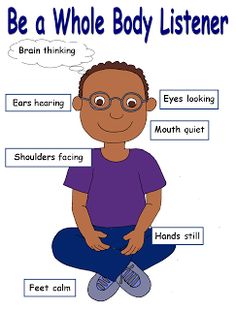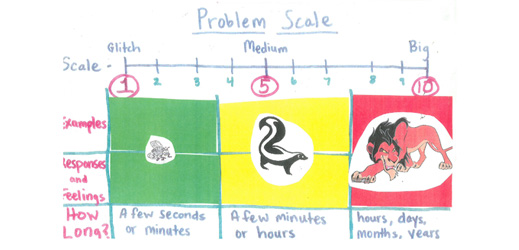Aaronisms: The Language Of Aaron School
At Aaron School, we pride ourselves on our collaborative, unified approach to building academic, social, and critical thinking skills among our students. With the understanding that the best learning happens when everyone is consistent, teachers, therapists, and administrators at Aaron School utilize a common vocabulary to help our children be successful students and community members. We call these phrases or terms Aaronisms, and many are borrowed from educational curriculums, such as Michelle Garcia Winner’s “Social Thinking Curriculum,” or the “Nickel Video” series. By utilizing these vocabulary terms during home activities and daily routines outside of school, parents and caregivers can promote continuity and carryover across the educational and home environments. Parents may be surprised by how well their children respond to some of these concepts and ideas. They can be valuable tools to use during common tricky situations inside and outside of school. Below, you will find some examples of Aaronisms that you can use at home.
For instance, when children are having difficulty following directions or paying attention to others, parents can cue the child to think with their eyes by saying “Show me you’re thinking about me.” When asking children to follow multi-step directions, such as lists of chores or morning routines, children can benefit from reminders to engage all their senses when focusing on the speaker. On these occasions, parents can prompt children to use “whole body listening” by using their eyes, ears, mouth, brain, body, and heart to focus on the speaker’s message. Additionally, problem solving and managing emotions are skills that many children struggle with, both at school and at home. Aaronisms can be used to help manage challenging behaviors like refusal to complete tasks, overreactions, and difficulty taking others’ perspectives. If a child is having an overreaction to a small problem, try reminding them that their problem is “just a glitch,” and that the size of their reaction is not matching the size of the problem. If a child is having trouble accepting rules (for example, refusing to eat dinner, or not wanting to go to bed), parents may want to try reminding them that they are not showing “expected behavior” and that the given direction is a “have-to-do, not a choice.” For situations in which a child is having trouble sharing, or refusing to compromise with a group, parents can encourage them to be a “Thinking of Others Kid,” not a “Just Me Kid.”

As students learn and grow at Aaron School, Aaronisms become a part of their daily vocabulary. By using this vocabulary at home and in your outside environment, parents and educators can work together to nurture and support our children.


